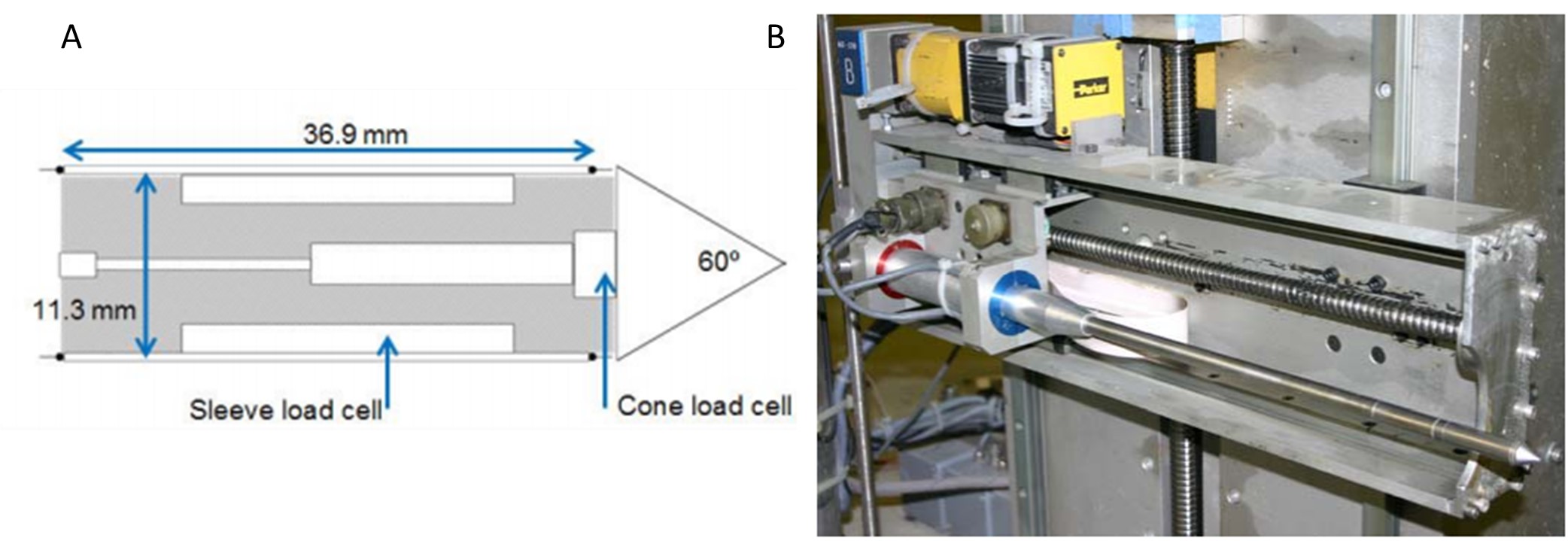Miniature CPTu Probe
The miniature CPTu probe (piezocone) allows in-flight measurement of soil strength, on the basis of cone resistance and side friction. As with its real-scale equivalent, when the cone penetrometer is pushed into the soil, it leads to bearing capacity failure of the soil and full flow around the cone and shaft. The penetration shaft has an outer diameter of 11.3 mm, the length of the sleeve is 36.9 mm, and the cone angle is 60°.
Cone resistance and side friction are measured with built-in load cells, and a PPT (installed behind the cone tip) is used to measure the in-situ pore water pressure through an annular ceramic filter. The CPTu tool is mounted on the actuator of the tool platform, allowing the control of penetration rate and depth. The CPTu test is displacement-controlled, with a penetration rate of 0.2–2 mm/s (which corresponds to 10–100 mm/s in prototype scale).
The miniature CPTu probe has been used extensively in the ETHZ drum centrifuge, allowing in-flight measurement of soil properties with good repeatability (Nater 2005; Weber, 2007; Arnold 2011; Pooley 2013).
